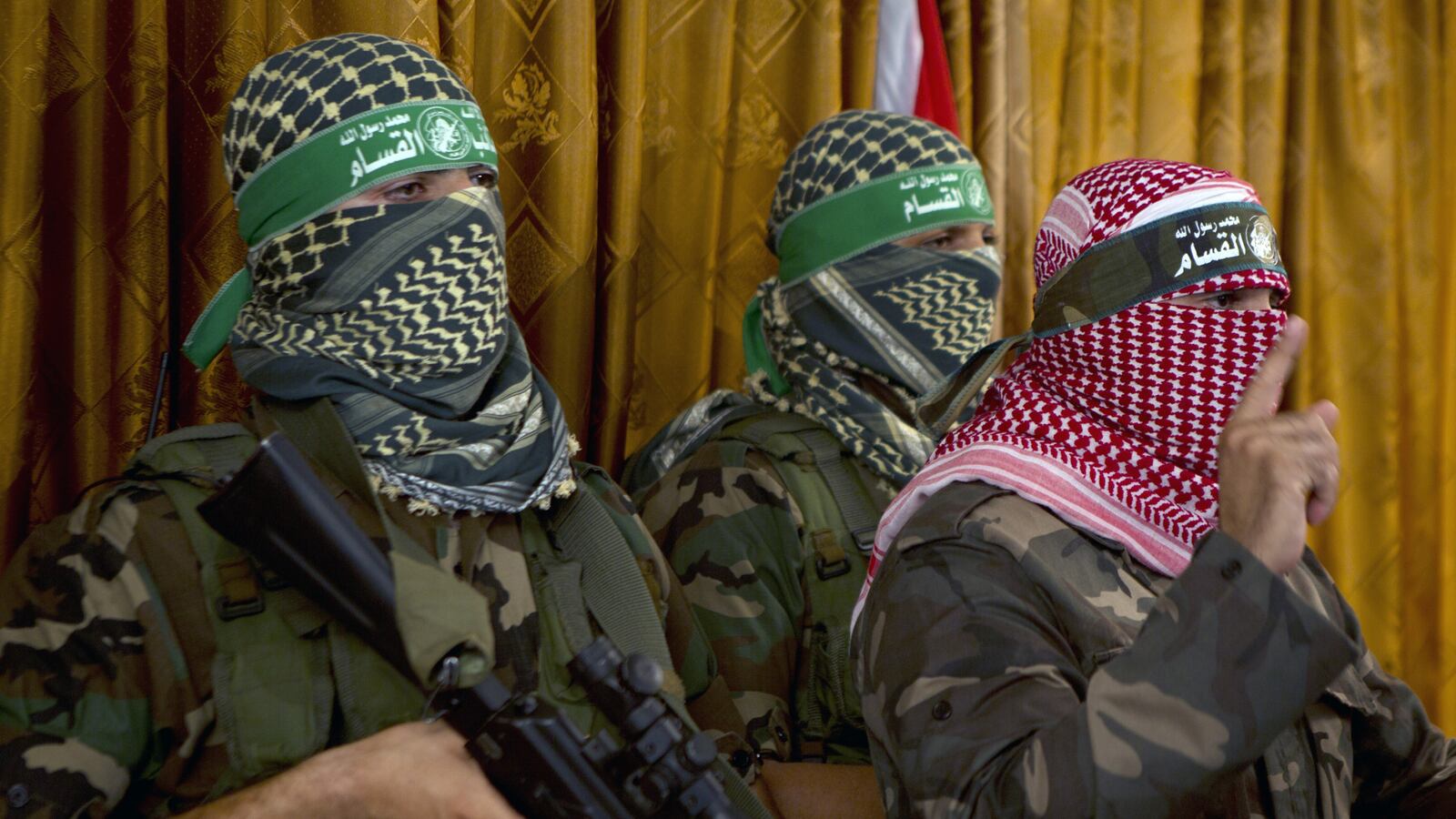GAZA CITY — Intense guerilla fighting to slow Israel’s ground offensive in Gaza is being fought on multiple fronts. The Palestinian death toll is spiraling; there are increasing Israeli losses; and claims that an Israeli soldier has been captured could have a powerful impact on the war if they are true or, indeed, if they are false.
If the Al Qassam Brigades, the armed wing of Hamas, were correct in their local televised announcement Sunday night that they took an Israeli soldier prisoner, Israel may face a situation similar to the abduction of Israeli soldier Gilad Shalit in 2006. He was held for five years and only released, at last, in exchange for more than 1,000 Palestinian prisoners.
Yet, with Hamas unwilling to provide any proof of life to support the claim, Al Qassam not giving interviews, it's unclear if the war actually has taken another turn or if this is all part of the complex but indecisive combat on the psychological battlefield.
Soon after the announcement by the Qassam Brigades, Israeli officials started to cast doubt on the abduction story. The Qassam spokesman had named the soldier as Shaul Aron and showed his ID papers. But there was no picture of the soldier himself, leading to speculation that he had been killed, not captured. Israel’s ambassador to the United Nations rejected the abduction claim outright, but the Israeli military released a statement Tuesday saying one body from an attack that killed seven soldiers in an armored vehicle on Sunday had not been recovered, then the IDF announced that Sgt. Oron Shaul is now officially classified as "missing."
“No one knows any details, but this is the right of the resistance to capture this soldier to release the 5,000 prisoners in Israeli jails,” contends Ehab al Hussain, the deputy information minister for Hamas. But with no proof that a captive has been taken, that “right” is purely rhetorical.
The prisoner issue touches every Palestinian family, since at one time or another one-third of Palestinian men go through Israeli jails, according to the Palestinian prisoner rights group Adameer. At the same time, Israelis are hugely sensitive about the security of their soldiers, seen simultaneously as national symbols of strength and as the nation’s kids.
Israel’s desire to see the return of its soldiers is so strong that if the Army’s statement is true, that does not rule out a prisoner exchange for the body. In May 2008, Hezbollah secured the release of five Lebanese prisoners from Israel in exchange for the bodies of two Israeli soldiers killed in Lebanon. The deal included the release of Samir Kuntar, involved in an attack in Israel that killed a father and daughter.
Hamas, which is dwindling in popularity, completely isolated in the region and facing growing animosity inside Gaza before the war, needs to demonstrate that its resistance strategy is effective in ending Gaza’s blockade and pushing back the occupation.
The announcement of the capture was greeted in Gaza as a rare moment for celebration between the shell blasts. Mosques around Gaza City erupted with calls of “God is Great” following the Al Qassam declaration. For the first time in this war, the sounds of rifle file were celebratory rather than a part of combat.
Traumatized and war-weary Gazans see extracting a price from Israel for its military campaign, which has killed more than 560 Palestinians thus far, many of them women and children, as the only way out of the cycle of siege and incursion that has been going on since 2008. The Palestinian fighters, for their part, have killed at least 26 members of the Israeli military, which is twice as many as in the last major Gaza incursion in 2009 and the highest toll since Israel’s war against Hezbollah in Lebanon in 2006.
For 19-year-old Doha Hammad, lying in a hospital bed with shrapnel in her legs from an Israeli shell blast, fighting on is the only option. She was wounded while sitting in her family’s living room in Beit Lahia, and she said she is desperate to see the war end—but not at any cost.
“I want to see the borders open, freedom, electricity and water,” said the university student, wincing in pain and trying not to disturb the IV taped to her hand. “Only the resistance fights for us,” she added, noting that the international community, despite the money it has given and the platitudes it mouths, has been unable to change Palestinian conditions for the better.
Less than a mile away from Hammad’s hospital bed is the front, where shells rain down and pockets of Palestinian fighters respond to the approaching Israeli army with machine-gun fire from abandoned buildings.
Hamas, more popular for its commitment to armed struggle against occupation than for its oppressive Islamic politics, campaigns for Palestinian hearts and minds by showing its determination to keep on fighting regardless of the cost.
The fierce opposition encountered in Gaza by the Israel Defense Forces since their ground offensive began last Wednesday has shocked the Israeli commanders. But if Hamas can’t back up its claim to have an Israeli soldier in custody, it could damage confidence in its militant strategy.
If a soldier has been taken, the pressure will be on Israel, and Hamas’ argument that armed struggle gets more for Palestinians than negotiations will be further strengthened, at least in the minds of those lying in hospital who dream of freedom and see armed struggle as the only way out.






